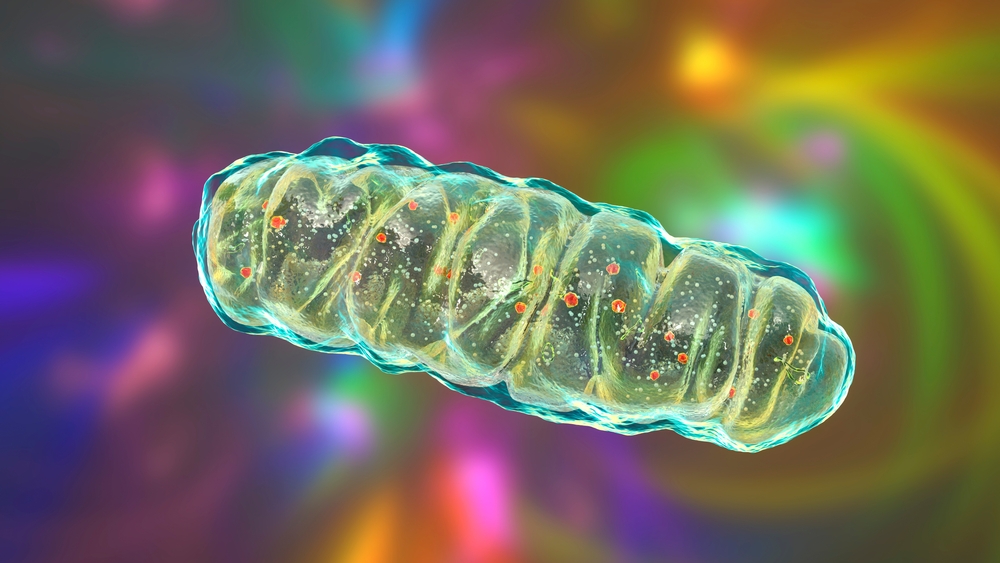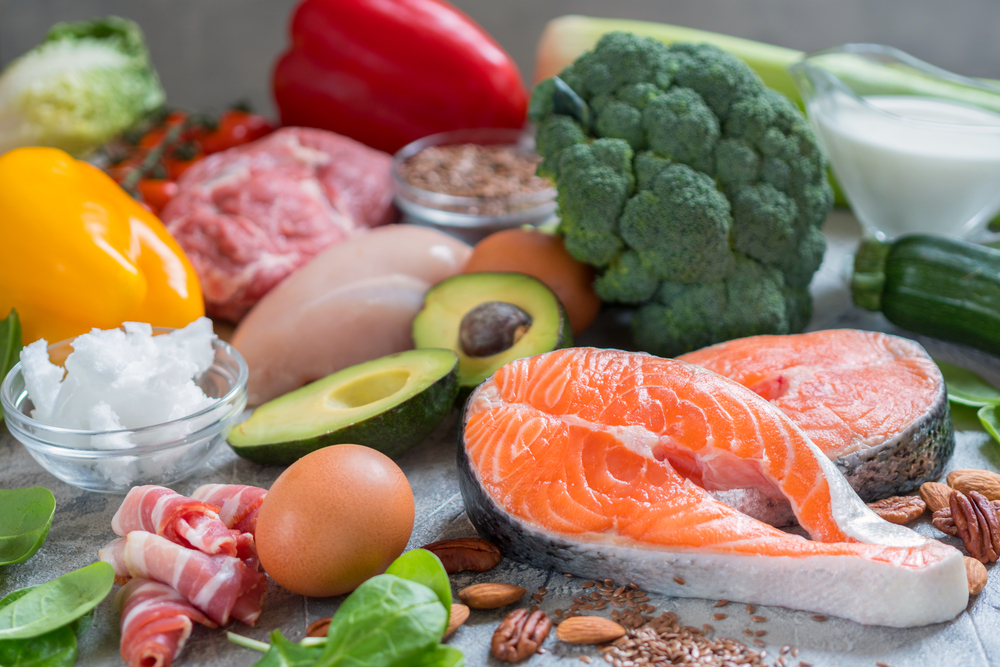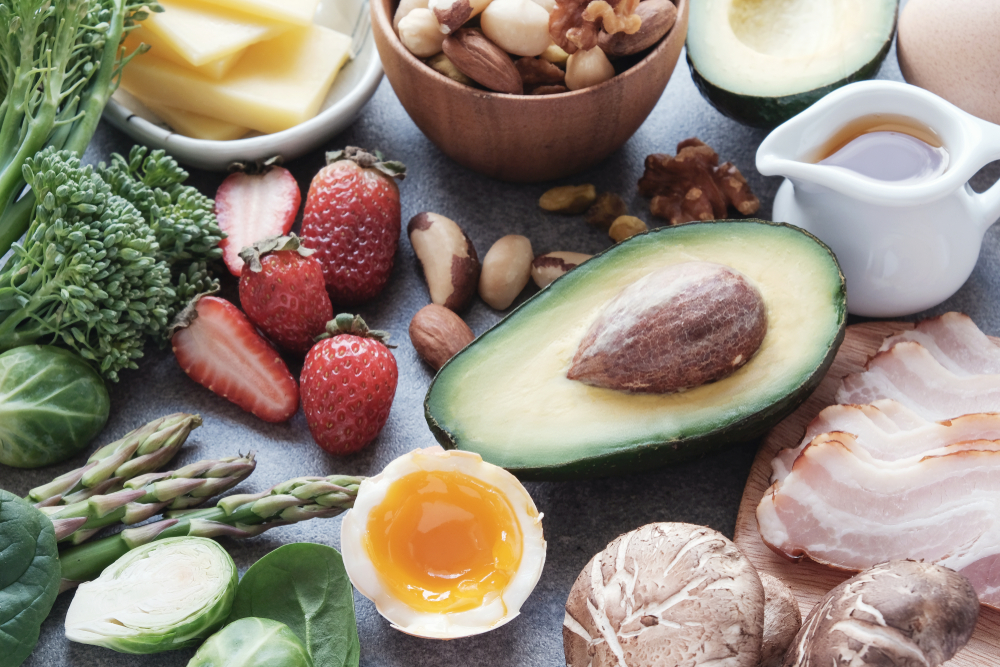It is not uncommon for many of my clients to hear comments from their doctors and friends about why they shouldn’t be on a ‘keto diet’. These include comments such as:
“Oh, you’re not on that diet, are you?”
“Oh, that diet is dangerous.”
“That diet is bad for metabolism.”
“How can you put that much fat into your body?”
“That diet is not good for adrenal health and can cause thyroid issues.”
“You must go off that diet as it’s bad for your cholesterol.”
In reality, not a single one of these statements has any truth to it. Let me explain why.
Nutritional ketosis is a metabolic state whereby the body burns primarily ketones over glucose to fuel the body. When we follow a standard supermarket diet rich in refined carbohydrates and processed, additive-rich packaged foods, the body will convert carbohydrates into glucose. In response, the pancreas produces insulin to bond with glucose molecules and transport them inside our cells where organised structures called mitochondria convert them into adenosine triphosphate (ATP). ATP delivers energy to the body and keeps our cells alive.

As a side effect of this conversion process, harmful free radicals are produced, increasing our need for antioxidants to clean up the damage. Burning glucose is a bit like burning old lead petrol: it causes ‘environmental damage’ which the body must then compensate for.
However, there is a much cleaner fuel option, which is healthier and far less taxing on the body. If we don’t consume enough dietary carbohydrates, our body will go to stored body fat, or dietary fat, and convert it into ketones in the liver. Then, instead of burning glucose, ketones will penetrate the cells and be converted into ATP by the mitochondria to become our major fuel source.
One benefit of this is that far fewer free radicals are produced as a result of burning ketones; it’s more like a ‘clean, green, energy source’. Another plus is that the body does not require insulin to transport ketones into cells, as ketones are able to do this on their own. The positive spin-off of this is that the body no longer has to navigate constant adjustments of sugar and insulin levels in the body, thereby stabilising bloody sugar levels automatically. This explains why many type 2 diabetics are able to control and even completely reverse their condition within weeks of being in a ketogenic metabolic state.
So, the ‘keto diet’ isn’t a diet at all; it’s a natural metabolic shift that switches the body from burning glucose/sugar as fuel to using stored or dietary fat as fuel.

As such, to judge a keto diet is no different to judging a standard supermarket diet. Let’s say people walk into a supermarket and load up their trollies – one filled with unhealthy, chemical-laden, ultra-processed foods and another with vegetables, meats, dairy and natural, unprocessed whole foods. I can guarantee that these parties will eventually have very different health outcomes. So in reality, you can eat a healthy or unhealthy supermarket diet.
The same applies to those modifying their carbohydrate intake, in order to induce a state of ‘nutritional ketosis’. One person’s trolley might contain a load of fake keto foods like Quorn, cheap fats such as canola and plenty of processed nitrate-rich meats, while the other person’s trolley may be filled with vegetables, quality meats, whole dairy, unprocessed whole foods and healthy fats, with a few modifications and limits on high carbohydrates. Again, these two people will eventually have very different health outcomes. And again, the truth is that you can follow a healthy or unhealthy version of a ketogenic diet.
It is also important to understand that a ketogenic ‘diet’ is not a fad. It is possible to follow a ketogenic paleo, Mediterranean, vegetarian, pescatarian, carnivore, whole foods, shake-based or processed foods diet – and combine it with any kind of ethnic cuisine. Just as you can when you’re being metabolically fuelled primarily by glucose.

Here are a few facts everyone should know about nutritional ketosis:
- It’s not a diet, it’s a natural metabolic shift.
- Our bodies produce ketones and glucose all the time – they will always maintain a level of ketones and glucose.
- When our body is in a state of nutritional ketosis, it will always maintain a healthy glucose level, as some organs require both. Our body will convert protein and even fats into glucose to maintain a healthy glucose baseline.
- Babies are born in the metabolic state of ketosis and will remain there while fully breastfed.
- Breast milk is a ketogenic meal.
- If a baby eats a high-carbohydrate food such as a banana, their body will usually revert back into ketosis within an hour (adults take 2 to 3 days).
- Nutritional ketosis is a natural metabolic state.
- Before excessive levels of grains and sugars were introduced into our diets, most traditional diets were very low in carbohydrates. Hence, our ancestors would have been in a state of nutritional ketosis, at least some of the time.
- Humans are designed for ‘metabolic flexibility,’ which means our bodies can easily switch between adapting to one primary fuel source or the other (glucose and ketones) while always producing both. It’s simply the ratios that will differ.
- The number of daily fat servings you require (from as little as 3 to as much as 20) depends on our individual health goals and needs. Eating too much fat will prevent weight loss as the body burns dietary fat before it unlocks its own fat reserves; that’s why not all ketogenic plans are created equally. If someone is eating to control a medical condition and weight loss is not required, then they must increase fat servings to ensure they consume enough energy. If someone wants to lose weight, on the other hand, they have to reduce their fat intake to encourage the body to break down excess fat reserves.

My program, The Ketogenic Switch (TKS), is a healthy, natural whole foods ketogenic diet that contains a moderate amount of just 3 to 5 servings of healthy fats per day. I teach people how to ‘fat cycle’ so that they can maximise their weight loss and health outcomes. For long-term maintenance, I encourage regular healthy carbohydrate cycling to help maintain metabolic flexibility whilst enjoying a wide range of ‘food pleasures’ in life.
TKS is not a lifestyle of deprivation, but one that is focused on longevity, vitality and peak performance of body and mind. I hope this blog has helped dispel some of the myths you may have come across, and encourages you to give this lifestyle a go.
Nature doesn’t get it wrong and we were born in a state of ketosis for a reason. And, with many modern diseases now proving to be the result of metabolic dysfunction caused by excessively high-carbohydrate diets, I believe this type of eating provides a solution for many struggling with metabolic diseases.
Love
Deborah xxx



No Comments